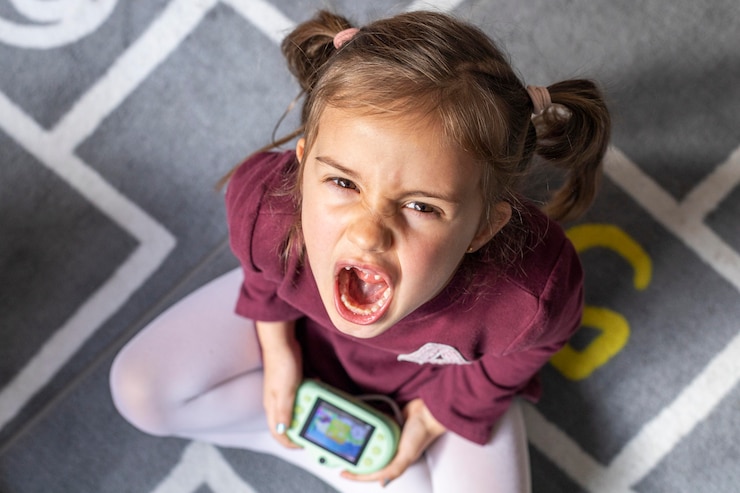
If you’re raising a child who often feels angry, understanding what’s causing their anger is the first step in managing it. While it’s not always possible to fully understand every angry outburst, there are some common reasons why a child might find it challenging to control their emotions.
It can be tough as a parent to deal with anger and irritability in children. Sometimes, their anger seems to appear out of nowhere, and no matter what you try, it doesn’t seem to help. Kids often act out when they’re frustrated because they haven’t yet learned how to handle their feelings positively. There might be another deeper reason why your child often seems angry.
Growing up, others’ anger made me feel inadequate, while my own anger made me feel powerful during my teenage years and in control as a parent amidst the chaos. I’ve now learned that these feelings were just anger’s way of hiding deeper hurt and helplessness.
Anger is more than what it seems. Don’t let your child’s anger mislead you; it’s a way for them to protect themselves. When they lash out with words like “I hate you,” they’re actually feeling very vulnerable.
Anger is a natural reaction for survival, not something inherently bad. Children who are angry aren’t bad kids; they’re just trying to cope the only way they know. There’s always a reason behind a child’s anger, but we often don’t look deep enough to find it.
To help a child manage their anger constructively, the key is to uncover the root causes. Get curious about what’s underneath their strong reactions. Although pinpointing the specific cause of every angry moment isn’t always possible, several common factors can affect how a child handles anger daily.
You might be familiar with physical growing pains, but have you considered emotional ones? Different stages in a child’s development involve extensive brain growth, which can impact their ability to manage self-control. During times of rapid growth, like toddlerhood and adolescence, a child’s brain areas responsible for regulating emotions may not work efficiently.
What many parents don’t realize is how often anxiety in children resembles anger. Anxious brains go into “fight or flight” mode, making kids more prone to react with anger. Anger can feel like a quick way for children to gain a sense of power in a world where they follow instructions most of the time.
Angry outbursts can be a child’s way of expressing powerlessness. Changes and loss, both natural parts of life, can also bring out anger. Even small disruptions like starting preschool can unsettle kids. High emotions linked to grief and loss further hinder their ability to control angry impulses.
Some children have inherent emotional and behavioral conditions, such as ADHD or Autism, which affect their capability to manage anger. These conditions usually emerge early in life and influence emotional regulation.
A child’s personality is partly innate, and some kids are naturally less adaptable than others. Emotionally sensitive children often face a harder time dealing with their feelings because they experience emotions more intensely.
The behaviors parents model significantly influence a child. If anger is routinely displayed as a means of control by adults, children can mimic these strategies. A child learns most from the behavior they observe.
Physical health, including diet and sleep, plays a crucial role. Low blood sugar or insufficient sleep can heighten a child’s struggles with anger. So, seemingly small changes like more sleep or outdoor play can improve their mood.
Undiagnosed learning issues may also manifest as frustration and anger, where expectations don’t match a child’s abilities, leading to stress cycles. Anger is a natural emotion, but for some children, it can be more intense, causing significant stress for them and their families.
Understanding the factors beneath your child’s anger is the first step in helping them build a healthier relationship with it. Anger can mislead parents, leaving them feeling out of control. But by understanding its role as a coping mechanism, parents can guide their child toward managing it healthily.
For those struggling, a mental health professional can provide clarity and support. Therapy equips children with lifelong skills to handle their emotions.
These skills are invaluable for guiding your child’s future. Join other intentional parents and sign up for the “Parents with Confidence” weekly email for a free 5-day parenting course. You’ll learn essential skills for nurturing your child’s self-esteem, gaining their cooperation, and disciplining without harm.
If anger is causing issues at school or home, it’s worth seeking professional insight into what your child might be experiencing. Helping them handle anger constructively is a lifelong gift.
Angela Pruess, a Licensed Children’s Mental Health Professional and Positive Parenting Coach, welcomes you to explore how every child deserves a fulfilling life driven by emotional well-being.



